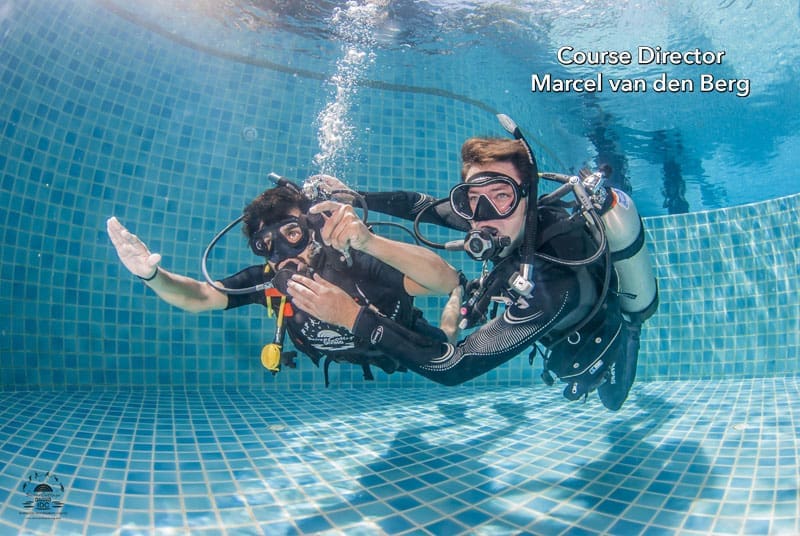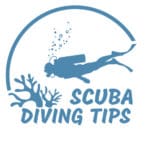I was actually self taught in the beginning. I was about eleven years old and had the local dive shops and boats bamboozled into believing that I was certified. I even got a few free dives for helping out on the boats with the tourists! Then we moved to Southern Germany and I signed up with a government sanctioned "search and rescue" group. We never rescued anybody but we did search for a lot of boat motors, fishing poles, WWII weapons caches and dead bodies. I got my European certification thru them.
I came back to Florida in 1974 and I was a hot sheeiit diver! Yes sir indeedy! Then I accidentally got mixed up with those psychos from the Hurlburt SpecOps Base teaching a NAUI course and I discovered what real training was! They abused us! I would have quit if there hadn't of been girls in the class!
There was a lot of fun during the training don't get me wrong but on other stuff, they had no mercy. And they made us do pushups for screwing up!
As an example: I guess some people died because they didn't check their J Valves so they did away with them. Allegedly, their Reserves were already on when they clicked it expecting to get another few minutes so they drowned. To me, that is incomprehensible. How can you not know the status of your J valve Reserve?
I was trained in that NAUI course to check my J valve every five minutes. It's simple! You just reach your left hand back to the metal ring, pull it down and then push it back up. You can hear both clicks. They trained us on that so hard that we all walked around for six months, searching for that D ring, waving our left hands behind our butts like we were waving away a stinker.
I had enough experience when I took that NAUI course to know that I was being trained above and beyond "Standards". Yeah, it was taught by psychos, every one of them some kind of Special Forces Soldier but there were a couple of woman and even one girl and they all passed it too! Except, they talked nicer to them and called them Mam instead of what they called us and didn't make them do as many pushups.
To the question of "How do I know I was trained to standards"?: I can only suggest that if it was all fun and games, you were probably not trained up to standards. If your "gut" is telling you to run away, take big steps. The human body is comprised of many different types of sensory systems, not all of them understood. The mind listens to those signals and processes them and then tells us thru our instinct, gut, feelings, little voice, etc. to warn us. pay attention. If the training doesn't feel up to snuff, get better training.
I like hearing stories about how it was back then, quite entertaining. Scuba training then was different than now. Training was all over the board, and all of it was ‘over standards’ according to the person doing the training. A standard was also something that varied greatly.
With all the pushups and such, do you know what you get when you do a lot of pushups? You get really good at doing pushups. What this has to do with diving still leaves me scratching my head. A lot of the instructor staff back then were former military, so I suppose that’s all they knew how to teach someone; like it was bootcamp.
You mentioned something about climbing a high dive ladder in full gear then jumping off to do a ditch and don, or something to that effect?
This is all fun and hard core etc. but how is this teaching someone to use scuba?
This is where scuba kinda went off the rails and why training is what it is today. At one point scuba almost dried up because of draconian old school training and nonsensical hazing. Most people couldn’t hack it nowdays and they shouldn’t have to. Stick to things pertaining to scuba. And now we have the opposite in terms of anybody can do it, and there is a percentage that probably shouldn’t be doing it, but with enough hand holding and positive talk they somehow make it through, barely.
These are ones that are not fit to dive autonomously, they require a hand holder to be carefully lead around. That’s fine, there’s an entire industry built around this type of underwater tourist.
Now the underwater harassment fine, as long as it’s productive and not too mean. That could actually be a lifesaver in the event if a large animal encounter where a diver gets physically assaulted by something like a large sea lion or runs into an angry giant pacific octopus. Having your mask ripped off and the reg pulled out if your mouth from behind is a real thing with GPO’s.
And doing some incremental dives deep and then deeper on air I do not think is a bad thing either. It’s important for divers to know and understand what narcosis is and that’s best first experienced in a training atmosphere. And his should be BEFORE they get out if any respectable OW course. If an instructor is going to set a diver free into the wild with a bid of ‘good luck’, I would hope they know how to handle the basics, or at least know enough to get out of trouble if they wandered into some.
Yes, divers need to be in shape, but that’s not the dive instructors responsibility. There are gyms for that, and prospective divers need to be in shape BEFORE they sign up for scuba not during. Nobody that is grossly out of shape is going to get in shape in two or three weeks doing push ups and swimming endless laps in a pool, or running.
Good exercises to get divers in shape for diving is fin kicking. I’d rather see people doing endless laps in a pool with mask fins and snorkel.
Then IMO, there isn’t enough panic management training going on in todays OW training. This is the thing that kills divers more than anything. Panic.
There needs to be more repetitive training on the things that can trigger panic, so eventually those things are no big deal and just another annoyance. The more you work on the stuff the better you get at it, just like push ups.





